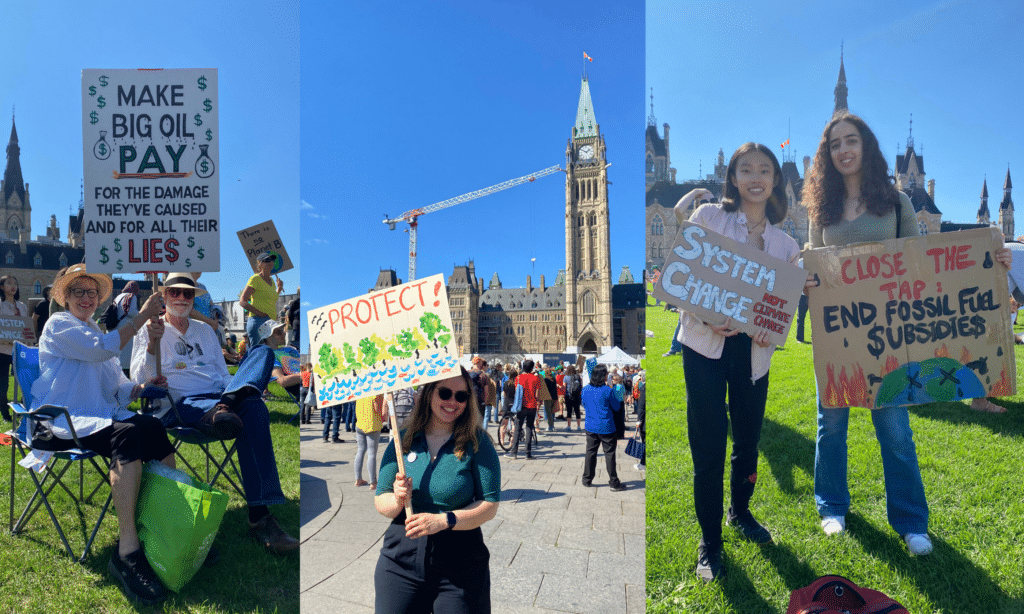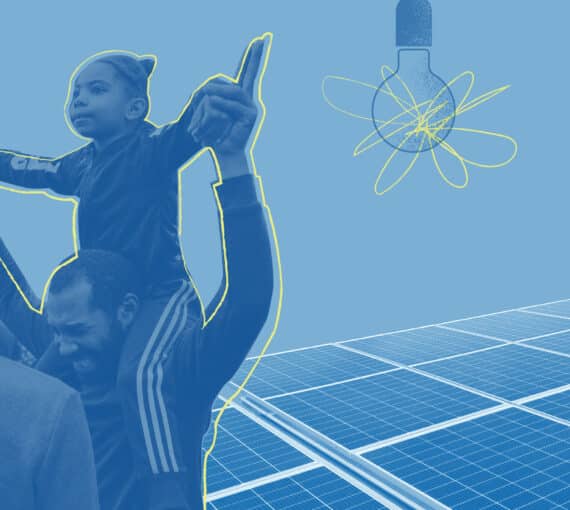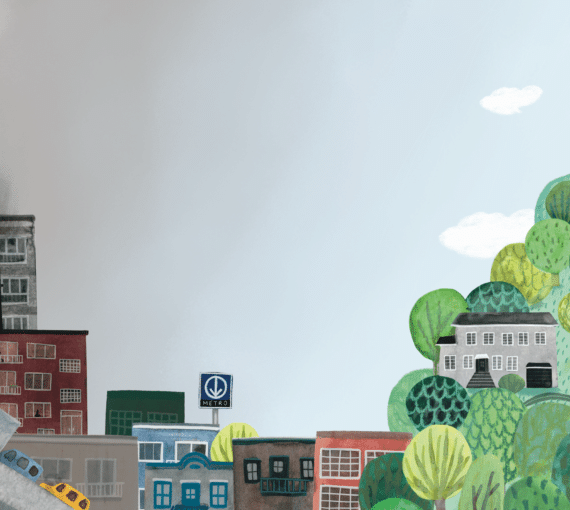
The end of fossil fuels offers us a chance to rethink and rebuild our economies from the ground up, guided by the need to reduce emissions.
As the echoes of climate strikes reverberate around the world, and we reflect on the profound sense of unity and purpose witnessed during these events, one undeniable truth emerges: The end of fossil fuels is not merely an environmental necessity; it is a transformative opportunity to reshape our societies, economies and collective wellbeing.
I had the privilege of participating in the Ottawa climate strike this weekend and watched from afar as my colleagues followed suit in Vancouver and Toronto. The experience was nothing short of inspiring. The atmosphere buzzed with palpable energy as people from diverse backgrounds came together, bonded by a common dedication to the planet’s wellbeing. Attendees came prepared with signs and banners bearing powerful messages of hope and urgency.
“Earth is on FIRE!”
“Hold polluters responsible for their impact.”
We can and must improve our actions for the environment, for generations to come and for our own benefit.
What we saw during the climate strikes was a celebration of the potential for a wellbeing economy. A wellbeing economy recognizes that our current path of relentless consumption and extraction is unsustainable. It acknowledges that true prosperity is not measured solely in economic terms but in the health and happiness of our communities and the health of our planet.
A wellbeing economy recognizes that our current path of relentless consumption and extraction is unsustainable. It acknowledges that true prosperity is not measured solely in economic terms but in the health and happiness of our communities and the health of our planet.
The transition away from fossil fuels is a linchpin in building this wellbeing economy, and the scientific data underscore its urgency. According to the Intergovernmental Panel on Climate Change, we must limit global warming to 1.5 C above pre-industrial levels to avoid catastrophic consequences. This means we have a limited carbon budget left, and the clock is ticking.
The end of fossil fuels offers us a chance to rethink and rebuild our economies from the ground up, guided by the need to reduce emissions. The transition means investing in clean and renewable energy sources, creating millions of green jobs and significantly reducing our carbon footprint. Research by organizations such as the International Renewable Energy Agency shows that renewable energy technologies are not only environmentally friendly but also economically viable, with the potential to drive sustainable growth.
Furthermore, a report from the United Nations Development Programme highlights the co-benefits of climate action, including improved air quality, reduced health care costs and enhanced energy security. By prioritizing public transportation and sustainable urban planning, we can make our cities cleaner, healthier and more livable. By supporting farmers who practice regenerative agriculture, we can ensure food security and foster healthier eating habits. And by reimagining our production and consumption patterns, we can reduce waste and minimize the environmental impact of our lifestyles.
In the aftermath of the climate strikes, I am left with a profound sense of optimism. People are ready for change, and they are willing to work together to make it happen.
In the aftermath of the climate strikes, I am left with a profound sense of optimism. People are ready for change, and they are willing to work together to make it happen. The transition away from fossil fuels is not a burden but an opportunity — a chance to build a world where wellbeing is at the forefront of our priorities, supported by a solid foundation of scientific data.
As we move forward, let us carry the spirit of the climate strikes with us. Let us remember the sense of unity and purpose that filled the air. Let us channel that energy into the hard work of creating a wellbeing economy. The end of fossil fuels is the first step on this transformative journey, and it is a journey well worth taking — for the sake of our planet, our communities and our own wellbeing.
Always grounded in sound evidence, the David Suzuki Foundation empowers people to take action in their communities on the environmental challenges we collectively face.



